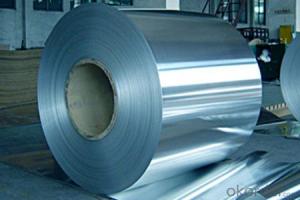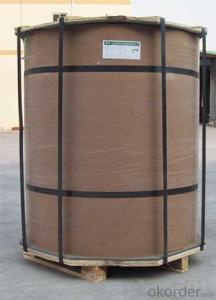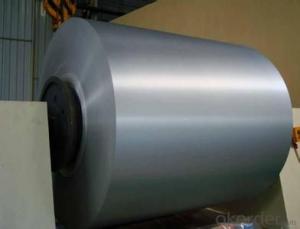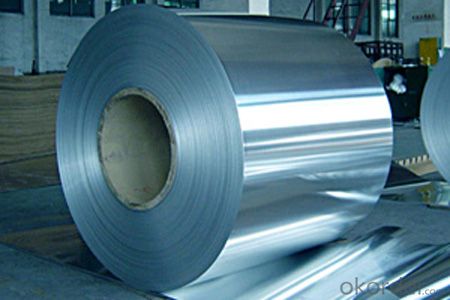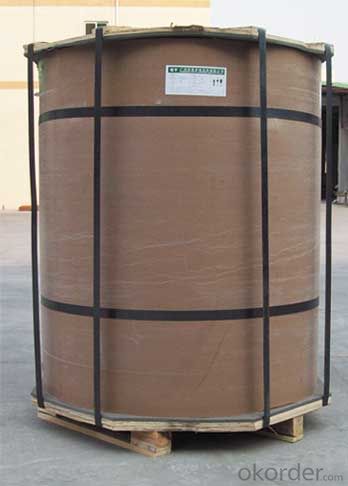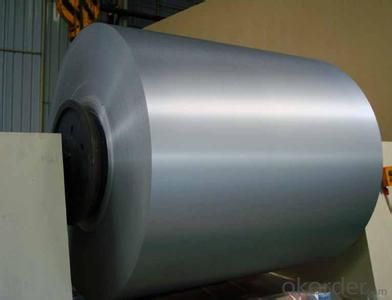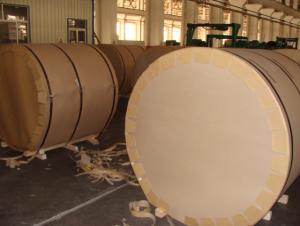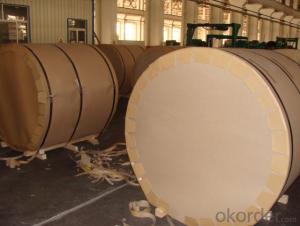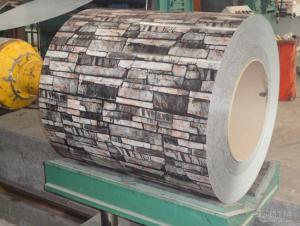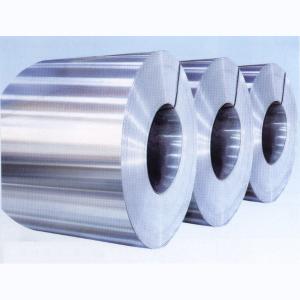Mill-Finished Aluminum Coils 1xxx - Aluminum Coil Ontario
- Loading Port:
- China Main Port
- Payment Terms:
- TT or LC
- Min Order Qty:
- 3 m.t.
- Supply Capability:
- 100000 m.t./month
OKorder Service Pledge
OKorder Financial Service
You Might Also Like
1.Structure of Mill-finished Aluminum Coils 1XXX Description
Mill-finished Aluminum Coils 1XXX has great ductility, heat conductivity, anti-corrosion and moisture resistance properties.
Mill-finished Aluminum Coils 1XXX is free from Oil Stain, Dent, Inclusion, Scratches, Stain, Oxide Dicoloration, Breaks,
Corrosion, Roll Marks, Dirt Streaks and other defect which will interfere with use
2.Main Features of Mill-finished Aluminum Coils 1XXX
• Superior quality of raw material
• Reasonable and stable chemical composition
• Accurate tolerance
• Goode mechanical property
3.Mill-finished Aluminum Coils 1XXX Images
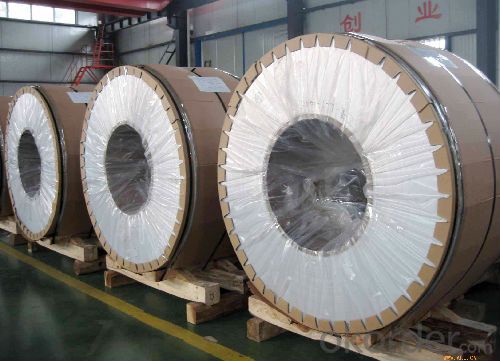
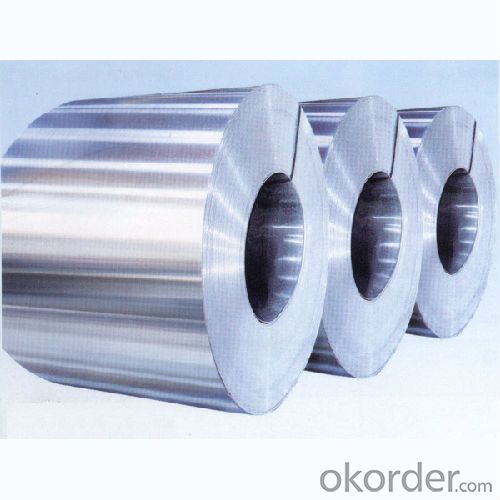
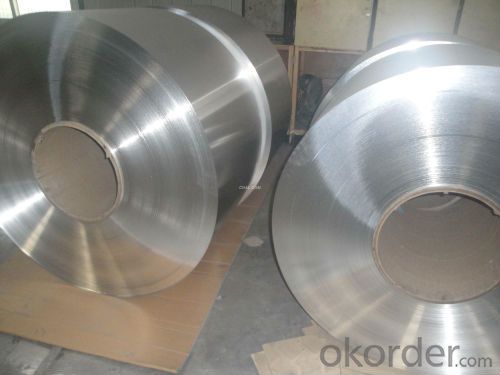
4.Mill-finished Aluminum Coils 1XXX Specification
Alloy | AA1xxx (AA1050, AA1060, AA1070, AA1100 etc. |
Temper | H14, H16, H18, H22, H24, H26, H32, O/F |
Thickness | 0.2mm -- 100mm |
Width | 30mm -- 1700mm |
Standard | GB/T 3880-2006,EN,ASTM,JIS |
5. FAQ of Mill-finished Aluminum Coils 1XXX
A.What is the package?
It is wooden pallet
B.Where is your mill located.
The mill is in Henan province.
- Q: I bought some drain opener as a source of sodium hydroxide and it has little silvery balls in it which I believe are aluminium. How can I separate the two substances with minimal loss of the sodium hydroxide? I don't care about the aluminium.
- Trust me. Its not worth salvaging the hydroxide. Aluminum hydroxide is unbelievably stable and that means you probably won't be able to salvage the hydroxide without doing electrolysis or something difficult like that. That's like trying to obtain hydroxide from methanol CH3OH. Oh yea you can make methanol quite easily from a halomethane by reacting it with a hydroxide of some kind. But you will not be able to remove that hydroxide at all without neutralizing it with an acid. Hydroxides are bloody awful leaving groups. That oxygen is really glued on to that carbon well. You have to really destabilize that methanol to remove that hydroxide. Same with the aluminum hydroxide. Very stable and strong bond.
- Q: Do you have an aluminum coil first? Is there an aluminum plate?
- The general process of aluminum plate production is: aluminium ingot - aluminum water - casting roll - aluminum roll ---- aluminum plate [Ji'nan excellent aluminum industry]. Welcome to visit.
- Q: When you are cooking fish? I ran out of aluminum foil, all I have is parchment paper on hand. Does it matter or affect the way the fish gets cooked? Just wondering what the difference is, if any.
- The fish should cook fine in the parchment paper - it could be even better that way.
- Q: We are working on a new aluminum fixture. It is basically an aluminum spine with many 6061-T6 pins sticking out. Currently we drill the holes inside the spine and hammer the 5/32 6061-T6 pins inside. Is there anyway to cast aluminum with many 6061-T6 pins embedded (they will stick out after the casting)?
- Similar to the plaster answer. You will need to sacrifice your mold for each unit made. Use a thin shelled mold with the pins sticking into it. Have it in a second fixture that will hold the other end of the pins. Have you considered putting the holes in the part during the molding process? Don't drill them afterwards just pound in the pins.
- Q: How to purchase PE polyester coated aluminum sheet and PVDF fluorocarbon coated aluminum coil?
- Both belong to color coated aluminum sheet and coil. Customers can purchase ordinary aluminum sheet or coil, and then go to special coating company to add PE polyester coating or PVDF fluorocarbon coating. The color is bright and quality is also very good. PE polyester coated aluminum and PVDF fluorocarbon coated aluminum coil has a wide range of usages: construction industry (aluminum-plastic panel, aluminum honeycomb, roof corrugated sheet, fireproof veneer, aluminum ceiling, shutter, rolling shutter door, garage door, awning, water gutter), electronic appliances (computer chassis, computer panel), lighting, furniture, solar reflector, air conditioning duct and the like. At present it is still applied in many areas including electronic appliance, instrument, lighting, packaging and house decoration.
- Q: What is the density of aluminum coils?
- The density of aluminum coils typically ranges from 2.6 to 2.8 grams per cubic centimeter.
- Q: Are aluminum coils suitable for electrical insulation applications?
- No, aluminum coils are not suitable for electrical insulation applications.
- Q: What are the various surface finishes available for aluminum coils?
- There are several surface finishes available for aluminum coils, each catering to different needs and preferences. Some of the most common surface finishes include: 1. Mill Finish: This is the most basic and natural finish that aluminum coils come with. It has a smooth, shiny appearance and is achieved by passing the coil through a series of rollers during the manufacturing process. 2. Anodized Finish: Anodizing is an electrochemical process that adds a protective layer to the surface of the aluminum coil. It can be done in various colors and provides enhanced resistance to corrosion, abrasion, and wear. Anodized finishes are commonly used in architectural applications. 3. Painted Finish: Aluminum coils can be coated with paint to provide an aesthetic appeal and offer additional protection against environmental elements. The paint can be applied in various colors and finishes, such as matte, glossy, or metallic. 4. Brushed Finish: This finish is achieved by brushing the surface of the aluminum coil with abrasive materials, resulting in a textured appearance with fine lines or scratches. Brushed finishes are often used in decorative applications, as they give a unique and stylish look. 5. Polished Finish: Polishing involves buffing the aluminum coil's surface to create a smooth, reflective finish. It gives a mirror-like appearance and is commonly used in decorative and architectural applications where a high-end, elegant look is desired. 6. Embossed Finish: Embossing is a process in which the aluminum coil's surface is stamped or pressed with a pattern or design. This finish adds texture and depth to the coil, making it suitable for applications that require a decorative or non-slip surface, such as flooring or signage. 7. Laminated Finish: Lamination involves bonding a thin layer of film or foil onto the surface of the aluminum coil. This finish provides additional protection against scratches, stains, or UV radiation. It is commonly used in applications that require durability and resistance to harsh conditions. These are just a few examples of the various surface finishes available for aluminum coils. The choice of finish depends on the specific application requirements, desired appearance, and functional properties needed for the end product.
- Q: Are aluminum coils suitable for food and beverage packaging?
- Yes, aluminum coils are highly suitable for food and beverage packaging. Aluminum is a safe and durable material that helps protect the quality and freshness of food and beverages. It is non-toxic, corrosion-resistant, and provides an effective barrier against moisture, oxygen, and light. Additionally, aluminum coils are lightweight, easily moldable, and can be easily shaped into various packaging formats, making it a popular choice for the food and beverage industry.
- Q: Can aluminum coils be used in wastewater treatment plants?
- Yes, aluminum coils can be used in wastewater treatment plants. Aluminum coils are commonly used in the construction of heat exchangers, which are essential components in wastewater treatment plants. Heat exchangers are used to transfer heat from the wastewater to the treatment process, helping to optimize the treatment efficiency and reduce energy consumption. Aluminum coils are preferred in some cases due to their excellent thermal conductivity, lightweight, and resistance to corrosion, making them suitable for the harsh environment of wastewater treatment plants. Additionally, aluminum coils are cost-effective and have a long lifespan, making them a reliable choice for use in wastewater treatment facilities.
Send your message to us
Mill-Finished Aluminum Coils 1xxx - Aluminum Coil Ontario
- Loading Port:
- China Main Port
- Payment Terms:
- TT or LC
- Min Order Qty:
- 3 m.t.
- Supply Capability:
- 100000 m.t./month
OKorder Service Pledge
OKorder Financial Service
Similar products
Hot products
Hot Searches
Related keywords
